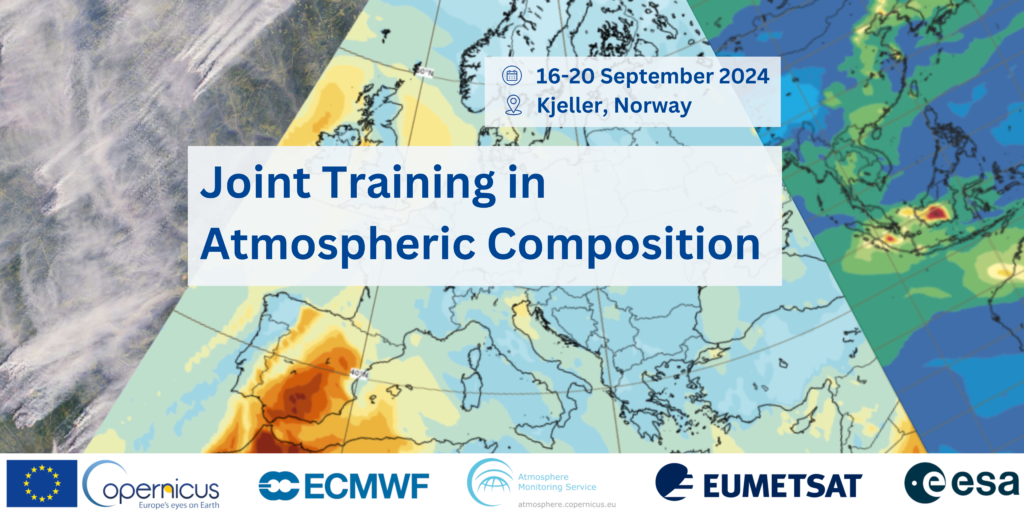
The 6th training in atmospheric composition monitoring and modelling will take place in Oslo, Norway from 16 to 20 September 2024.
Venue: Climate and Research Institute NILU, Instituttveien 18, 2027 Kjeller, Norway
The training is jointly organized by the European Center for Medium-Range Weather Forecasts (ECMWF) with the Copernicus Atmosphere Monitoring Service (CAMS), the European Space Agency (ESA), and the European Organisation for the Exploitation of Meteorological Satellites (EUMETSAT).
The course will take place in-person and will be hosted by the Climate and Research Institute NILU. There are likely to be some online lectures scheduled prior to the in-person training.
Objectives of the training
The main objective of the course is to provide a holistic introduction to the end-to-end processes involved in atmospheric composition monitoring and modelling. This includes state-of-the-art sensing instruments and techniques (satellite, airborne, surface); emissions inventories; modelling concepts and processes such as data assimilation and model evaluation; service provision, applications and policy needs. Other objectives of the training are to introduce participants to observation and model data and to develop participants’ skills in accessing, handling and processing this data in a variety of applications. Fostering collaboration and networking amongst participants from multiple countries and backgrounds is also a key aim of the course.
Target audience
The course is targeted to post-graduate level students, researchers, professionals or anyone interested in furthering their knowledge of atmospheric composition monitoring and modelling and developing their practical skills in data handling. Some basic background in physics, chemistry, mathematics and computing is assumed, and elementary familiarity with Python programming would be beneficial to make the most of the training.
Whilst the onsite training is limited to around 30 participants, some lectures may be streamed to a wider audience. When selecting candidates for the on-site training, participants from Copernicus contributing countries and member states of ESA and EUMETSAT are given preference. Students from all other countries are also welcome to apply, subject to availability of space.
Topics of the training
Whilst the topics of the training cover the main processes involved in atmospheric composition monitoring and modelling, the focus this year will be more on operational service aspects and the application of Earth observation and in situ measurements. This includes emissions inventories, modelling, data assimilation, forecasting and operational applications. However, the training also covers processes further upstream, such as monitoring instruments and remote sensing retrievals.
The main topics of the training include the following:
- Atmospheric processes: Chemical species, aerosols, GHG, air quality
- Modelling: Global/regional; analysis / re-analysis / forecast; bias correction & downscaling; inverse modelling / Data Assimilation / Digital Twins (DestinE)
- Emissions: Inventories, inverse modelling
- Observations: Spaceborne, in-situ, remote sensing retrievals, methods and analysis, exploitation
- Operational applications and services: Policies; public & private sector needs; applications & services.
More information on the joint school and registration are available at this link.

